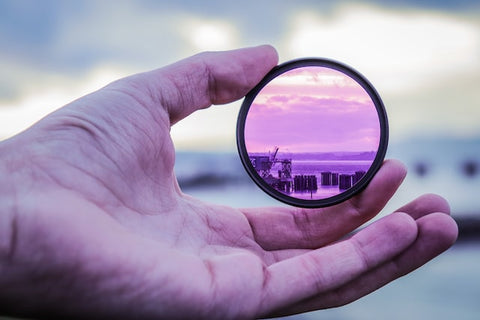Photograph Filters: The Pros And Cons

As Instagram grows more and more popular, so too does the art of photography. In many cases, however, platforms such as Instagram or Facebook are not entirely realistic reflections of everyday life – even though they’re supposed to be.
Just as Instagram photography has grown in popularity, the use of Instagram and photography filters has similarly become a standard in the social media world.
In many cases, filters add an extra layer of gloss to photographs, making them pop and shine. There are times, however, when filters are overused or utilised in a negative way.
So when you come to create your Facebook and Instagram photo book, how many filters will you have in your portfolio? Is it too much or not enough? To help you get to grips with the answer, here are the pros and cons of photograph filters and whether or not you should continue to use them.
Pros Of Photograph Filters
-
Colour Explosion
One of the positive elements of a filter is how they can make a drab photograph look incredible. Say you have taken a picture of a sunset outside your home. Sure, in reality, it looks beautiful. But in photograph form, sunsets rarely emit the same scene that you are seeing with your eyes. With the correct use of filters, however, you can improve the contrast of the image and increase the intensity of the colour.
-
Create Sharper Images
Every photograph should be different. Unfortunately, without a definitive effect or colour spread, our photographs can end up looking pretty identical. Special effect filters, however, can provide a different identity to each photograph. Whether that’s a warm pallet, a vintage feel or a sharp resolution, filters can be a quick and easy way to stand out from the crowd.
-
Get The Photograph Moving
Photographs can also feel a little static at times, even if you are capturing moving images. This is not a good thing if you are planning on finding a photo book maker to showcase photos that capture the attention of the viewer. It is very important that you create some motion in your scenes, and a filter can do this by reducing the level of light and increasing the shadows in the picture to create the feeling of movement.
Cons Of Photograph Filters
-
It Can Encourage Flaring
As mentioned before, photography filters are not all good news. A lot of the time, filters can actually impact your photography negatively. An overabundance of colour correction or contrast can encourage objects to flare and become unnatural. This is a problem if you are looking for clean, sharp images that provide a realistic interpretation of what you are seeing.
-
For The Professional, Filters Are Too Easy
Another reason filters can be frowned upon is simply because they offer the easy answer. Photography is all about trial and error, finding the right angle, capturing the perfect light…
Filters, on the other hand, have become a sort of cheat code. They provide a way to quickly add some gloss to photographs without taking into account the toil that made them special in the first place.
-
It Can Have Negative Mental Effects
One of the most important problems, however, comes when you introduce humans into the picture. A lot of the time, Instagram and Facebook filters can give us a boost of confidence before posting. Most of us have wondered, at some time or another, why we don't look good in selfies – and, while we're all our harshest critics and we really don't need those filters, we all feel more comfortable hiding those perceived flaws behind them.
This can then lead to adverse mental effects, as the subjects will feel like their natural selves are not enough. If you’re falling down the rabbit-hole of filters and edits, then remind yourself there is no reason that a photograph of yourself should be touched up. It’s important to appreciate your own beauty and avoid adding filters that change the way you really are.
The All In All
So there we have it. There are both pros and cons to photography filters. So are they good or are they bad? Well, the answer is: neither. Sure, photography filters have the potential to be good, but they also have the potential to be problematic. The important thing is to ensure you are utilising them properly and instilling a balance into your portfolio.
If things just aren’t working out with a particular picture, don’t shy away from going into the editing booth and touching it up. One thing is for sure, however. You should always trust in your own eyes. Don’t share pictures that you think people want to see. Instead, believe in your own abilities and your perception of beauty. If you do this, the photographs are sure to follow suit and will ultimately emit that same truth.





